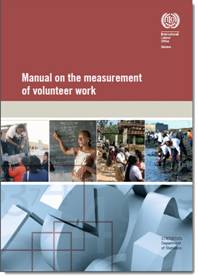Too Much? Too Little? Or Just Right? A Study of Accountability for Volunteer Contributions
 In the last quarter century, nonprofits have increasingly been held accountable for the resources that have been entrusted to them. For some organizations, accountability mechanisms have been imposed left, right, and center, as funders and donors seek to monitor the use of the funds they provide. While a reasonable amount of accountability is beneficial all around, too much emphasis on this measure can be stifling and may indeed have exactly the opposite effect of what it intended to promote: efficient and effective use of resources.
In the last quarter century, nonprofits have increasingly been held accountable for the resources that have been entrusted to them. For some organizations, accountability mechanisms have been imposed left, right, and center, as funders and donors seek to monitor the use of the funds they provide. While a reasonable amount of accountability is beneficial all around, too much emphasis on this measure can be stifling and may indeed have exactly the opposite effect of what it intended to promote: efficient and effective use of resources.
While we generally can find information on the financial resources used by nonprofits, public disclosure of the amount and significance of volunteer contributions to those organizations is far less common. In this Research to Practice, Laurie Mook presents the findings of researchers in Australia who set out to determine just how organizations account for volunteer services. The study involved over 400 nonprofit organizations. The researchers systematically reviewed these organizations’ websites and annual reports for any disclosure of volunteer contributions, including their acknowledgement; how they supported mission and the wider community; human resources measures such as the number of volunteers and hours contributed; and policies guiding their involvement.
How well did the organizations do in discharging their accountability for their reliance on and use of volunteer contributions? Too much, too little or just right? As Mook reveals, the results are enlightening.

 In
In